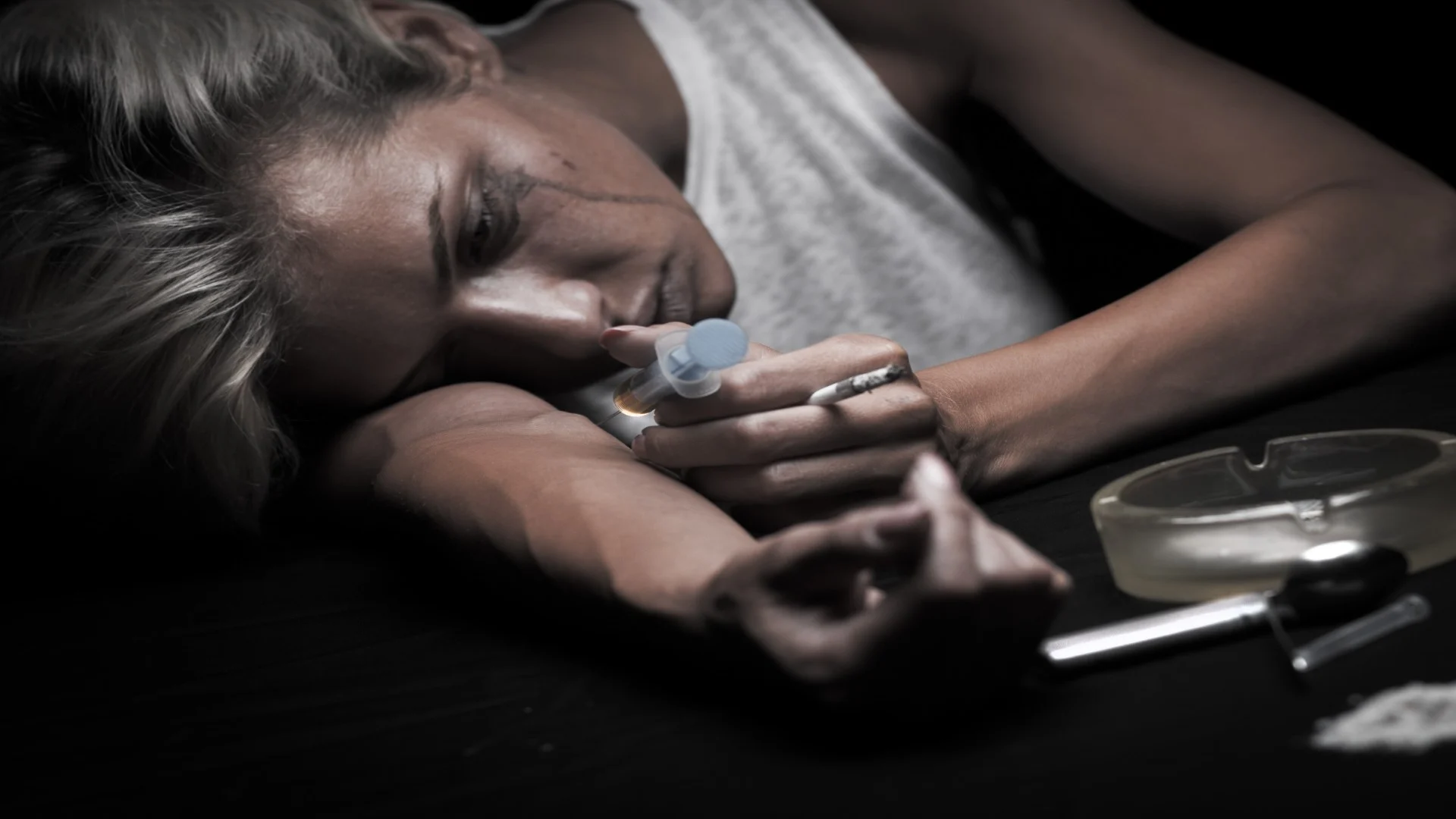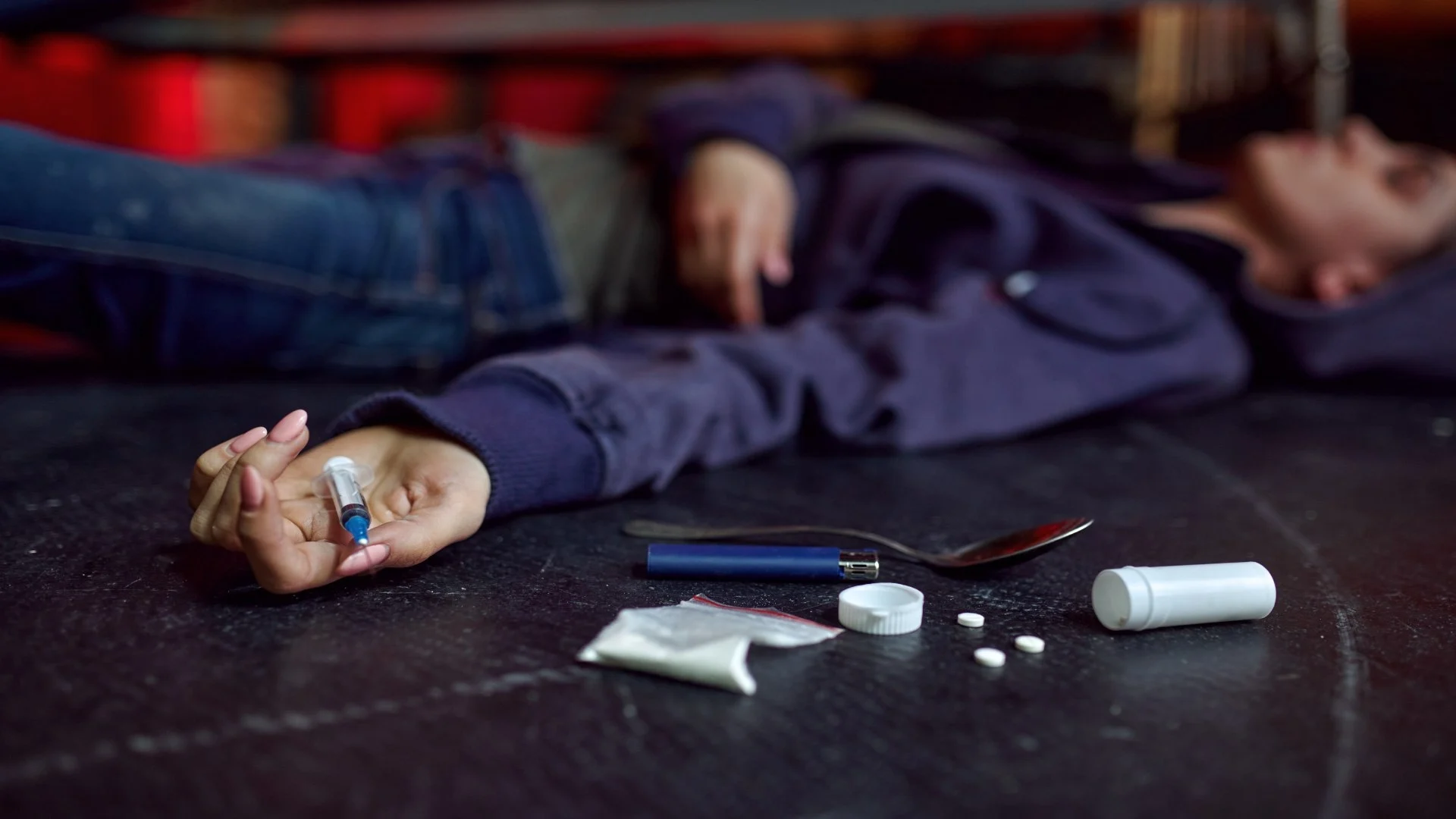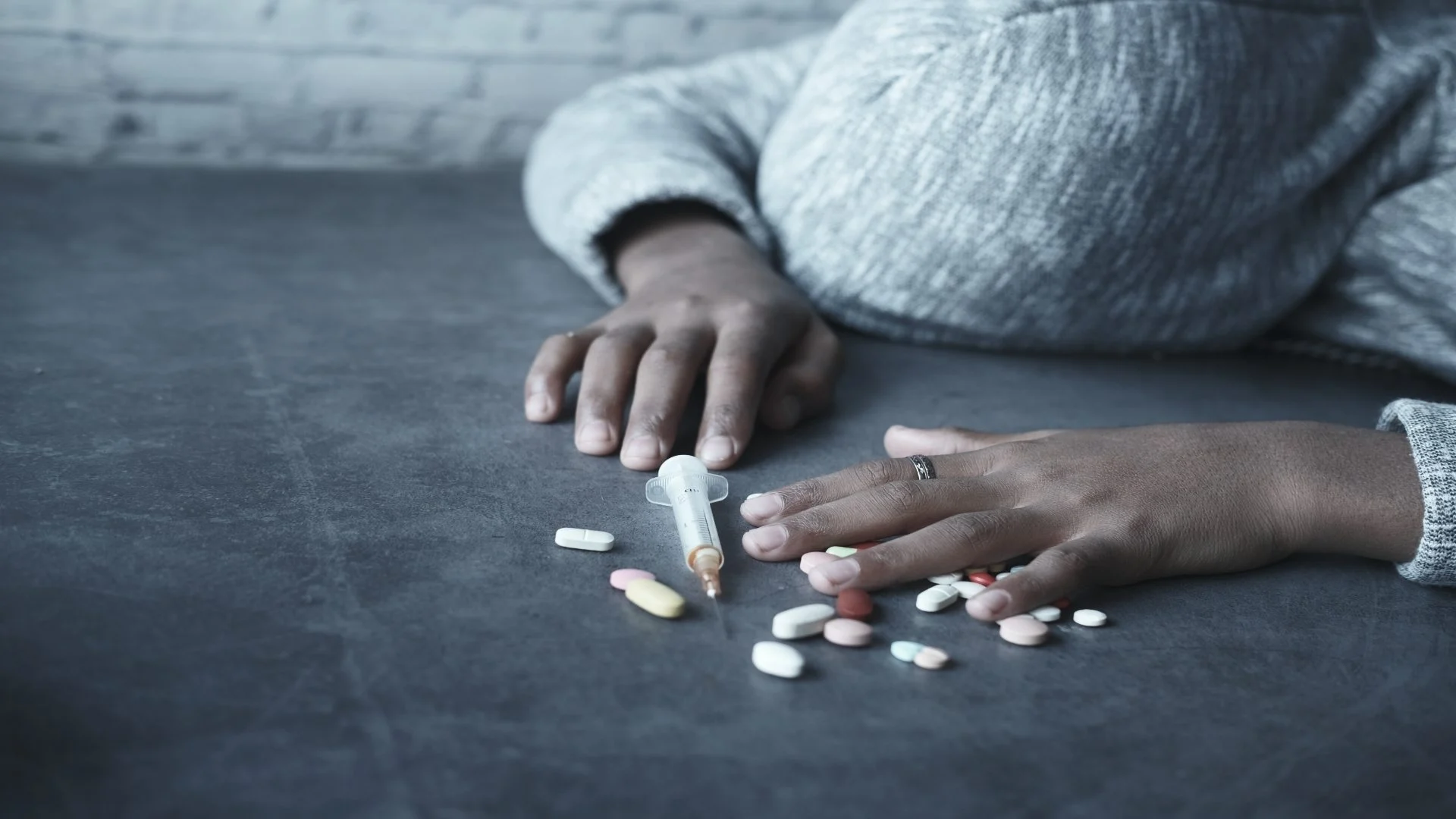Drug and Alcohol
Drug Addiction Help

Looking for drug addiction help? Explore personalized treatment interventions for sustainable, lasting recovery and a healthier, substance-free life.
What are the signs that someone needs drug addiction help?
Signs include neglecting responsibilities, strained relationships, financial or legal troubles, and declining physical or mental health due to substance use. Increased tolerance, withdrawal symptoms, and failed attempts to quit are also key indicators that professional drug addiction help is needed.
How does personalized treatment improve recovery outcomes?
Personalized treatment tailors therapy, medical care, and support services to an individual’s needs, ensuring a more effective recovery. By addressing underlying causes, co-occurring disorders, and personal triggers, customized treatment enhances engagement, reduces relapse risk, and leads to long-term success in overcoming addiction.
What role does family play in the treatment process?
Family involvement in drug addiction help strengthen emotional support, improves communication, and fosters accountability. Through family therapy and education, loved ones learn to set healthy boundaries, address enabling behaviors, and create a stable environment that promotes lasting recovery and relapse prevention.
What is Medication-Assisted Treatment (MAT)?
MAT is an evidence-based approach that combines FDA-approved medications with counseling and behavioral therapy to treat substance use disorders. It helps reduce cravings, manage withdrawal symptoms, and prevent relapse, making recovery from addiction safer, more comfortable, and more sustainable.
How can one prevent relapse after completing a treatment program?
Sustaining recovery requires active participation in aftercare programs, therapy, and support groups. Developing healthy coping strategies, recognizing triggers, and building a strong support system are essential for maintaining sobriety. Ongoing drug addiction helps ensure continued success in overcoming substance use challenges.
Struggling with addiction can feel overwhelming, but you don’t have to face it alone. If you or someone you love needs drug addiction help, the proper support can make all the difference. Addiction affects not just the individual but also their family, relationships, and overall well-being.
At The Edge Treatment Center, we believe in a personalized approach to recovery, ensuring that each person receives the care and treatment they need to heal. With evidence-based therapies and compassionate support, you can regain control of your life and build a future free from substance abuse.
Understanding Drug Addiction

Drug addiction is a chronic and relapsing disorder characterized by compulsive drug use despite harmful consequences. It affects the brain’s reward system, altering behavior and decision-making. Over time, individuals develop both physical dependence and psychological cravings, making it difficult to quit without professional drug addiction help.
The medical community classifies drug addiction as a substance use disorder (SUD), a diagnosable mental health condition that ranges from mild to severe. It is officially recognized in the Diagnostic and Statistical Manual of Mental Disorders (DSM-5), which outlines the symptoms and criteria for diagnosis.
Causes and Risk Factors
Addiction does not have a single cause. Instead, multiple factors contribute to its development, including:
1. Genetic Factors
Research suggests that genetics account for nearly 40-60% of an individual’s risk for addiction. Those with a family history of substance abuse are more likely to develop similar issues due to inherited traits affecting impulse control and brain chemistry.
2. Environmental Factors
Early Exposure to Drugs: The younger a person starts using drugs, the higher the risk of developing an addiction.
Peer Pressure: Social influences, especially during adolescence, can encourage substance use.
Family Dynamics: A lack of parental supervision, trauma, or family dysfunction increases vulnerability.
Socioeconomic Status: Financial hardship and exposure to high-risk environments contribute to substance abuse.
3. Psychological Factors
Mental Health Disorders: Conditions like depression, anxiety, PTSD, and ADHD often co-occur with addiction, making individuals more prone to substance use as a coping mechanism.
Stress and Trauma: People exposed to significant stress, abuse, or traumatic experiences may turn to drugs to self-medicate.
Impulsivity and Risk-Taking Behavior: Those with high impulsivity or sensation-seeking tendencies are more likely to engage in drug use.
Impact on Mental and Physical Health
Drug addiction has far-reaching consequences that affect both the mind and body:
Mental Health Effects:
Increased risk of depression, anxiety, and psychosis
Impaired decision-making and impulse control
Memory loss and cognitive decline
High risk of suicidal thoughts or behaviors
Physical Health Effects:
Cardiovascular issues: Increased blood pressure, heart attacks, and strokes
Liver and kidney damage: Common in opioid and alcohol addiction
Respiratory problems: Damage from smoking or inhaling substances
Weakened immune system: Higher susceptibility to infections
Neurological damage: Permanent changes in brain function affecting motor skills and cognition
Due to these severe consequences, seeking personalized and professional treatment is essential for recovery.
The Edge Treatment Center’s Approach to Personalized Treatment

At The Edge Treatment Center, we recognize that every individual struggling with addiction has unique challenges, needs, and recovery goals. Our approach focuses on personalized treatment, ensuring that each person receives a tailored recovery plan suited to their physical, emotional, and psychological health.
Comprehensive Assessment
The first step toward recovery at The Edge Treatment Center is a comprehensive assessment, which includes:
Medical Evaluation – Identifying physical health issues, withdrawal risks, and co-occurring medical conditions.
Psychological Assessment – Screening for mental health disorders, emotional triggers, and past trauma.
Substance Use History – Understanding patterns of drug use, relapse history, and previous treatment experiences.
Personal & Social Factors – Examining family dynamics, employment status, and social support networks.
This thorough evaluation helps our team develop a customized treatment plan tailored to the individual's needs.
Customized Treatment Plans
No two people experience addiction in the same way, which is why The Edge Treatment Center offers personalized treatment plans designed for each client. Our programs include:
Medically Supervised Detox – Ensuring a safe withdrawal process with medical oversight.
Evidence-Based Therapy – Incorporating proven methods like Cognitive Behavioral Therapy (CBT), Dialectical Behavior Therapy (DBT), and trauma-informed care.
Holistic Therapies – Complementary treatments such as yoga, meditation, and art therapy to promote emotional healing.
Individual & Group Counseling – Helping individuals explore struggles while building a strong support network.
Aftercare Planning – Creating a long-term recovery strategy with continued therapy, relapse prevention techniques, and support group recommendations.
Integrated Mental Health Services
Because addiction and mental health are closely linked, The Edge Treatment Center prioritizes integrated mental health support alongside substance abuse treatment. We provide:
Dual Diagnosis Treatment – Addressing both addiction and co-occurring mental health disorders simultaneously.
Psychiatric Support & Medication Management – Prescribing and monitoring medications for mental health stabilization when necessary.
Coping Skills Development – Teaching techniques for stress management, emotional regulation, and mindfulness.
Trauma Therapy – Specialized counseling for those with PTSD or past emotional wounds that contribute to addiction.
Our holistic approach ensures that individuals not only recover from substance abuse but also build a foundation for long-term mental and emotional well-being.


We’re Here To Help You Find Your Way
Would you like more information about mental health or drug addiction? Reach out today.
Treatment Modalities Offered
At The Edge Treatment Center, we offer a range of evidence-based treatment modalities designed to address addiction holistically, ensuring a safe and effective path to recovery.
Detoxification Services
One of the first steps in the recovery process is detoxification. At The Edge Treatment Center, we offer medically supervised detox programs designed to help individuals withdraw from substances in a safe and controlled environment.
Why Detox is Important
Long-term substance use leads to physical dependence, and stopping suddenly can cause withdrawal symptoms that range from mild discomfort to life-threatening conditions.
A medically supervised detox ensures that individuals undergo this process with medical professionals monitoring their health and well-being.
What to Expect During Detox
Assessment & Stabilization – A thorough evaluation determines medical needs and withdrawal severity.
Medical Supervision – Trained professionals monitor vital signs, provide medication if necessary, and ensure overall safety.
Emotional Support – Therapists and counselors are available to help individuals manage the emotional distress that may accompany withdrawal.
Detox alone is not a cure for addiction but is a crucial first step that prepares individuals for comprehensive treatment.
Therapeutic Interventions
At The Edge Treatment Center, we utilize evidence-based therapies to help individuals understand their addiction, develop coping strategies, and build healthier behaviors.
1. Cognitive Behavioral Therapy (CBT)
CBT is a goal-oriented therapy that helps individuals identify negative thought patterns and replace them with healthier coping mechanisms.
This method is highly effective for treating substance use disorders, anxiety, and depression.
2. Group Therapy
Group therapy provides a supportive environment where individuals can share experiences, gain encouragement, and learn from others facing similar challenges.
Licensed therapists lead sessions and focus on relapse prevention, emotional regulation, and building healthy relationships.
3. Trauma-Informed Therapy
Many individuals struggling with addiction have experienced past trauma. Our trauma-informed approach helps clients process these experiences in a safe and supportive setting.
4. Holistic Therapies
We also offer mindfulness, yoga, meditation, and art therapy to support emotional healing and well-being.
Medication-Assisted Treatment (MAT)
For individuals struggling with severe addiction, Medication-Assisted Treatment (MAT) can be a practical option.
MAT combines FDA-approved medications with therapy and counseling to manage cravings and withdrawal symptoms.
Medications used may include:
Buprenorphine (Suboxone) – Helps reduce opioid cravings and withdrawal.
Methadone – Used for long-term opioid dependency management.
Naltrexone (Vivitrol) – Blocks the effects of opioids and alcohol.
MAT is not a standalone treatment but works best with behavioral therapies and counseling.
Family Involvement and Support
Addiction does not just affect the individual—it impacts family members and loved ones as well. At The Edge Treatment Center, we emphasize family involvement as a crucial component of recovery.
Why Family Support Matters
Provides a strong emotional foundation for individuals in treatment.
It helps rebuild trust damaged by addiction.
Encourages healthy communication and boundary-setting.
Reduces the risk of relapse by fostering a supportive home environment.
Family Therapy Sessions
To help families heal, we offer structured family therapy sessions that:
Improve Communication – Helping family members express their emotions safely and constructively.
Educate on Addiction – Teaching families how addiction works and how they can support their loved one's recovery.
Resolve Conflicts – Addressing past pain and misunderstandings caused by addiction.
Strengthen Relationships – Creating healthy dynamics that promote long-term healing.

We’ll Lead You to New Heights
Do you have more questions about mental health or drug addiction? Reach out.
Struggling with Drug Addiction? We Can Help
Overcoming addiction is challenging, but with the proper support, recovery is possible. At The Edge Treatment Center, we provide personalized drug addiction help, offering comprehensive treatment plans tailored to your unique needs.
From detox to therapy and relapse prevention, our compassionate team is here to guide you every step of the way. Don’t let addiction control your life—take the first step toward lasting recovery today. Contact The Edge Treatment Center and start your journey to a healthier, substance-free future.

We’re Here To Help You Find Your Way
If you or a loved one is struggling with addiction, there is hope. Our team can guide you on your journey to recovery. Call us today.
Written by
The Edge Treatment Center
Reviewed by
 Jeremy Arzt
Jeremy ArztChief Clinical Officer
Drug and Alcohol
July 28, 2025
